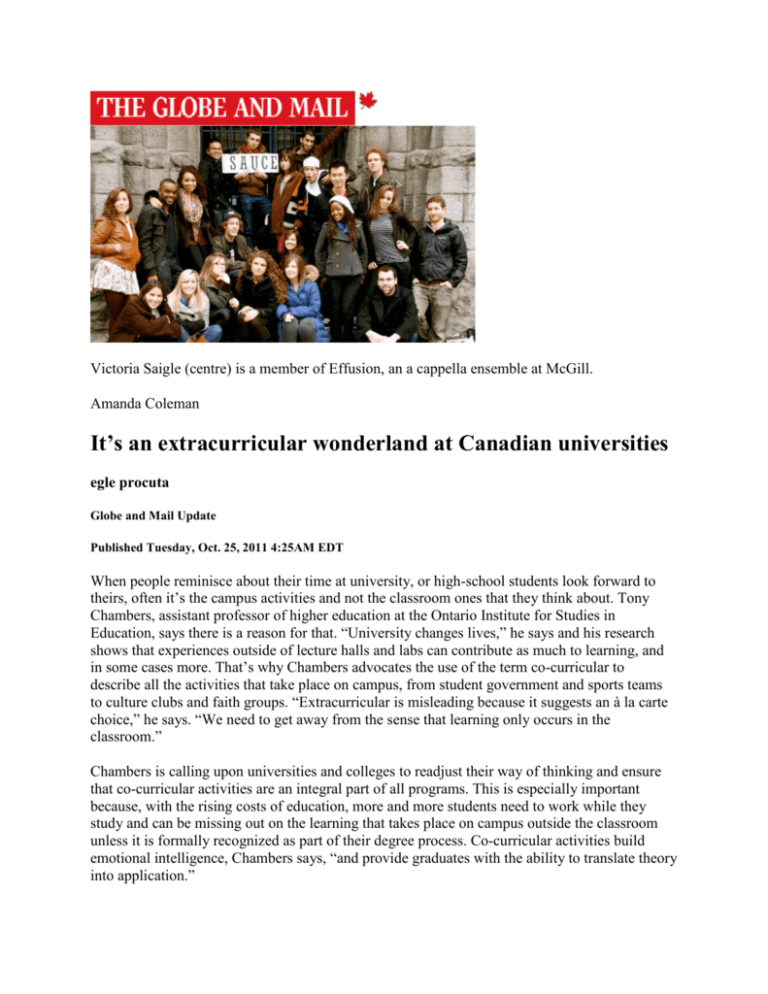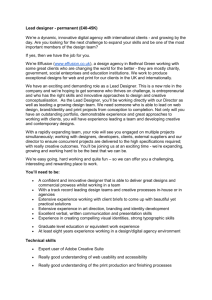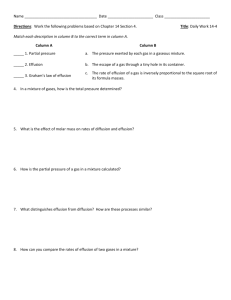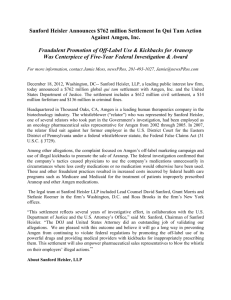
Victoria Saigle (centre) is a member of Effusion, an a cappella ensemble at McGill.
Amanda Coleman
It’s an extracurricular wonderland at Canadian universities
egle procuta
Globe and Mail Update
Published Tuesday, Oct. 25, 2011 4:25AM EDT
When people reminisce about their time at university, or high-school students look forward to
theirs, often it’s the campus activities and not the classroom ones that they think about. Tony
Chambers, assistant professor of higher education at the Ontario Institute for Studies in
Education, says there is a reason for that. “University changes lives,” he says and his research
shows that experiences outside of lecture halls and labs can contribute as much to learning, and
in some cases more. That’s why Chambers advocates the use of the term co-curricular to
describe all the activities that take place on campus, from student government and sports teams
to culture clubs and faith groups. “Extracurricular is misleading because it suggests an à la carte
choice,” he says. “We need to get away from the sense that learning only occurs in the
classroom.”
Chambers is calling upon universities and colleges to readjust their way of thinking and ensure
that co-curricular activities are an integral part of all programs. This is especially important
because, with the rising costs of education, more and more students need to work while they
study and can be missing out on the learning that takes place on campus outside the classroom
unless it is formally recognized as part of their degree process. Co-curricular activities build
emotional intelligence, Chambers says, “and provide graduates with the ability to translate theory
into application.”
We look at two students who are putting that theory into practice:
VICTORIA SAIGLE
Saigle, 20, from Metcalfe, Ontario, is in her third year at McGill University majoring in
cognitive science, with a minor in French. She hopes for a career in scientific research and wants
to be fluently bilingual by the time she graduates.
Beyond the classroom
Saigle is in her third year singing with Effusion, an a cappella ensemble specializing in pop, soul
and R&B that was formed at McGill in 1999. She found out about Effusion during first year at
an orientation session where the group performed. “It looked like so much fun,” she says. “It was
immediately where I knew I wanted to be.”
Memorable moment
This came in first year when she was among the 180 students auditioning for one of 20 spots in
Effusion. Saigle chose Sara Bareilles’s Fairytale, because it showed off her range. Although she
had studied classical music at high school, she had never performed pop before. “I’m not going
to lie,” she says, “it was nerve-racking.”
How she pulls it off
Saigle devotes about five hours a week to Effusion, going to rehearsals two evenings a week.
Rehearsals get more intensive when they’re getting ready for their two big concerts each year or
a tour. She finds it easy to strike the right balance between Effusion and her school work because
she knows at the beginning of the year when all her assignments are due and can plan her
schedule accordingly. She finished her second year with a B+ average.
The payoff
Saigle says Effusion has made a huge difference in enriching her university experience. The
other members in the group are like her family and provide an important support network while
she’s away from home. “Everyone wants to do as much as possible together,” she says. “It’s
really a lot of love. It doesn’t seem intensive at all. It’s just fun.”
Word of advice
Saigle says that because McGill is so big, it’s hard to be aware of the range of extracurricular
activities available. What’s missing is cohesiveness in how information is communicated to
students.
SEAN HEISLER
Heisler, 22, from Calgary, is in his final year studying applied engineering at the University of
British Columbia. Engineering runs in his family, but Heisler says he doesn’t see himself
building bridges all his life. He completed his first year at Queen’s before transferring to UBC
for its multidisciplinary, co-op program.
Beyond the classroom
Heisler is deep into university politics now, even though he used to be mostly apolitical. When
he signed up as secretary of the engineering department’s student club, he jokes that he was
drawn to the prospect of a free dinner. After, he became a student senator and that is where he
really began to hit his stride. He ran successfully to serve on the university’s board of governors
and has now been re-elected for a second term.
Memorable moment
When he began his first term on the board of governors, he was dismayed at the three-inch
binders full of support material that awaited each member at every meeting. “It was really heavy,
really expensive, really wasteful,” he says. So he pushed for paperless meetings. Now, all
support material is sent electronically and Heisler was able to demonstrate that buying every
board member an iPad actually saved money.
How he pulls it off
Heisler pends three to five hours a day on student politics—more when he travels to
conferences—but he still maintains an A average. He says he builds energy through his
involvement, rather than seeing it as a drain on him.
The payoff
Heisler has discovered career options like real estate development and human-resources
management. As well, he thinks that he would possibly run for federal or provincial office.
Word of advice
An advocate of telling students to get involved on campus in anything and everything, he advises
networking to find a good fit among the wide variety of activities available. “Dive in,” he says,
because you never know what’s going to strike your fancy.
© 2011 The Globe and Mail Inc. All Rights Reserved.






